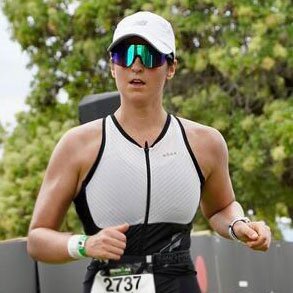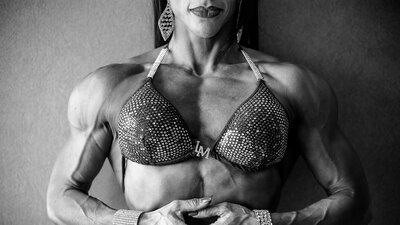It’s a widely known, unimpressive phenomenon that women in sports have historically taken the backseat to their male counterparts. Whether it be lack of equal pay, opportunity, or down right respect, women across the world have had to fight tooth and nail to be recognized for the talents they possess.
While pay and participation are often at the forefront of the systemic gender issues, exploitation too digs itself into the roots of unfathomable scandals felt across the globe.
The Boston Marathon, the oldest standing 26.2-mile race, was established in 1897 and did not allow women to partake because race organizers considered them “physiologically incapable'. Since opening the field to women in 1972, there have been a recorded 297,217 female participants. Today, women account for 45.7 percent of American marathon participants.
In 2017, the team doctor for the U.S. Olympic gymnastics team plead guilty to child pornography, tampering with evidence, and seven counts of sexual assault of minors. More than 150 athletes made impact statements at the week-long sentencing hearing. Since, Congress has enacted the “Safe Sport Authorization Act”, which helps prevent the sexual abuse of minors and amateur athletes, while holding authoritative adults in the sport accountable.
Until just 2022, the U.S. The Women's Soccer team struggled for equitable pay and treatment from the U.S. Soccer Federation, and filed a federal gender discrimintation lawsuit under the Equal Pay Act. The controversy led to international attention and engagement and later, the protracted legal battle led to a $24 million payout and the agreement to pool FIFA’s payments for the Men’s and Women’s World Cups.
For years, sports societies have tried spinning the narrative to say that women aren’t fast enough, strong enough, tough enough; that they don’t contain the mental or physical fortitude it takes to succeed in whatever endeavor they’ve set their sights on. They’ve said that womens’ bodies aren’t capable of running, lifting and jumping as fast, heavy and high as men.
To take it one step further, they’ve exploited women, on a number of occasions, thrusting their gender into headlines rather than maintaining focus on their athletic prowess.
Yes, the story of women fighting for simply the same treatment as men not only in sport, but in society, has made its way onto paper yet again.
But this story, this investigation, has further proven that we continue to live in a society where a woman’s fight for equality in power remains a battle unwon.
This is about the sport of bodybuilding, and how a longtime figure in the sport undermined and manipulated the dedication of women competitors for years.
Familiar Faces and Misplaced Trust
J.M. Manion has been a photographer for female bodybuilding athletes for over 15 years, while running a management company that has worked with top female competitors. The Manion name runs deep in the industry, with JM’s father being Jim Manion, the former bodybuilder who oversees the amateur National Physique Committee (NPC) and the International Federation of Bodybuilding and Fitness (IFBB) Pro League.
A recent Washington Post investigation revealed that J.M. operated a series of paid websites that have, over time, advertised “over 30,000” explicit images of female competitors in the sport, many of which were posted without consent.
Not only did J.M. post content without following proper image-release processes, but began charging monthly subscriptions dollars for access to photos.
Jenn Gates, winner of the 2008 Olympia, was earning enough in bodybuilding to leave her nursing job and pursue the sport full time, a feat that does not come easily. At the time, she was managed by J.M., who began asking her to pose without clothing for photos. While Gates refused, she was unaware that the photos he did take, ended up on one of J.M.’s pornography websites.
“I never consented to having my pictures put on a soft-porn site,” said Gates to the Post. Shortly after winning the Olympia, Gates gave up the sport altogether, disgusted and defeated, warning young competitors to stay far away from the contests.
Multiple women have gone on record describing their experiences with J.M. during private photo shoots, some taking place in hotel bathrooms on the road for shows. He’s been described as directing what some might describe as fantasy Playboy scenes, far from what women had anticipated when scheduling shoot plans.
Those that did oblige, were told they’d receive 50-50 profit splits, along with other empty promises, including but not limited to pro cards. A pro card is typically earned when an athlete wins a regional content weight class, making them eligible to compete at future national shows and easing the financial costs of the sport.
The Post did not receive direct comments from J.M. or Jim Manion, but from a crisis communications firm representing both the NPC and IFBB Pro League. The federations declined to say whether J.M. 's actions translated to competition results and scoring.
Rob Rosetti, a trainer who was sometimes present at photo shoots, denied that anyone was coerced, and that "It was done completely on the athlete's own free will," per the Post.
Both the NPC and IFBB Pro are private, for-profit companies, neither of which have provided transparency on efforts to enact safeguards for athletes, including human resource departments, health insurance packages or unions to protect competitors against abuses of power.
It remains unclear what repercussions come next for the Manions and two of the most “prestigious” federations in the sport.
According to the Post’s sources, Jim Manion was aware of actions being taken in hotel photoshoots, but would dismiss himself from the room prior to starting.
Time for Change
Relative to that of other pastimes, bodybuilding is a sport still in its infancy stages. Legends such as Iris Floyd Kyle, Ronnie Coleman, Lee Haney and others have paved the way for today’s competitors in terms of taking home hardware. However despite the efforts of the do-good veterans, the pillar of inequality still stands as tall as its neighboring pillars of strength and honor.
In 2021, Mr. Olympia took home a $675,000 prize, while Ms. Olympia left the stage with just $60,000. The Olympia is arguably the largest contest of its kind in the world, nodding to the notion that other annual competitions pay far less.
Bodybuilders are equal parts athletes and artists. The time spent in the gym paints the path towards a physique that is proudly presented on a stage in hopes that their relentless pursuit of perfection is not only recognized, but rewarded.
The hope? Change.
As one of the many steps to equalizing the environment, one would hope to see women stepping into senior leadership positions with the federations, bringing with them the true intent to change the landscape. The same could be said for an increase in female judges, implementation of privacy and protective regulations for athletes, and implementing change within judging criteria.
The NPC and IFBB officially began holding female bodybuilding competitions in 1980. At the time, winners were deemed as “Miss Olympia”, shadowing the constructs of beauty pageants. Despite the title change to “Ms.”, today the IFBB continues to have handbook regulations for women to the likes of, "muscular development must not be carried to such an excess that it resembles the massive muscularity of the male physique."
Bodybuilding has indeed come a long way since the explosion of the sport in the 70’s, with female participation growing each year, however the future seems grim.
Women competitors are tired. Tired of fighting for spots on the stage, tired of earning less financially, and tired of being viewed as the sex symbols of the sport rather than the elite athletes that they are.
The event lineup for the 2023 Arnold Classic was announced just two months ago, with multiple IFBB Pro League divisions for women being omitted, including Women’s Physique, Women’s Bodybuilding, and Figure International.
Dare we say that it is in fact, still a man’s world, when it comes to the sport of bodybuilding?
People in authority and decision-making positions have repeatedly failed to protect its participants for decades. Athletes who have spent so much time building, have been failed by a broken system.
To the leaders of our sport, this is our call for change.
Citations:

